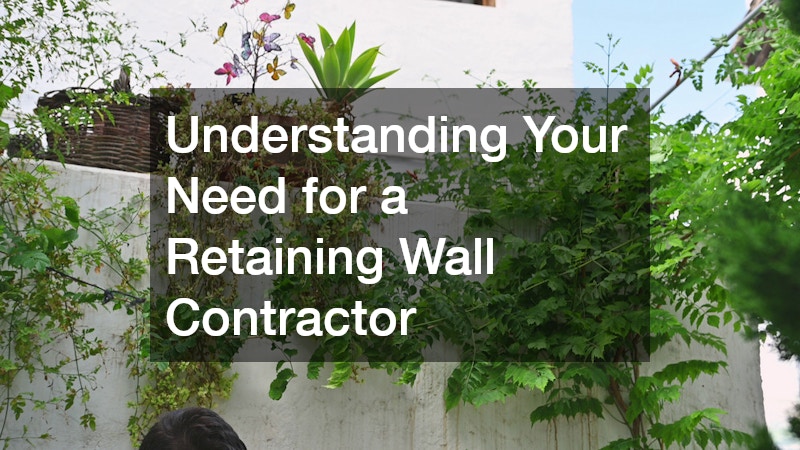
Retaining walls are essential structures in landscaping and construction that can help address issues such as soil erosion, water drainage, and creating usable land. When considering the installation of a retaining wall, hiring a professional contractor is crucial to ensure a durable and effective solution.
A retaining wall contractor specializes in designing, building, and maintaining various types of retaining walls. Their primary role is to assess the site conditions, including soil composition and slope gradient, to determine the best approach for construction.
Video Source
They must also consider environmental factors that could impact the wall's longevity.
Contractors recommend appropriate materials, be it stone, concrete, or wood, based on the specific needs of the site and the client's aesthetic preferences. They ensure that these materials are sourced sustainably and are of high quality to withstand local weather conditions.
In addition to construction, retaining wall contractors are adept at maintenance, providing services such as inspections and repairs to ensure the wall remains structurally sound over time. Regular maintenance is critical to prevent potential wall failure due to earth pressures and weathering.
Several types of retaining walls exist, each designed to address specific site conditions and loads. Gravity walls, for instance, rely on their immense weight to hold back the earth. They are typically made from concrete or stone and are suitable for walls with lower heights.
Cantilevered walls feature a reinforced concrete stem and base slab, designed to convert horizontal pressures into vertical forces. This design is beneficial for medium-height walls and situations requiring more architectural flexibility.
Anchored walls use cables or other stays to support the wall, making them suitable for high-load applications. Sheet pile walls, often used in soft soil or tight spaces, consist of vertical sheets of steel driven into the ground to provide support.
Hiring a retaining wall contractor becomes essential in various scenarios. One primary indication is a large slope on your property that might be susceptible to erosion or landslides. A properly constructed retaining wall can stabilize such slopes and prevent soil loss.
Poor drainage issues are another signal that it's time to consult a contractor. Without adequate water management, your landscape can suffer from runoff damage. A retaining wall can be integrated with drainage solutions to mitigate this problem effectively.
If you have an existing retaining wall that shows signs of wear and tear, such as cracks, bulging, or leaning, it's crucial to engage a professional. A contractor can assess the damage, determine the underlying cause, and recommend repairs or a new wall installation.
Choosing the right retaining wall contractor is critical to the success of your project. Begin by checking their credentials, including licenses and certifications, which ensure they meet industry standards. A qualified contractor brings expertise and adherence to safety regulations.
Experience plays a vital role; therefore, reviewing the contractor's portfolio can provide insights into their style and capability. Look for projects similar to yours in scope and complexity to gauge their proficiency. Client reviews and testimonials are also valuable for assessing satisfaction and reliability.
Ensure the contractor provides a comprehensive proposal that outlines the project scope, timeline, materials to be used, and a detailed cost estimate. Additionally, a reputable contractor will offer a warranty that protects you against future defects or installation issues.
Opting against hiring a professional can lead to significant risks. One common issue is improper installation. Without the necessary expertise, the wall may lack the stability needed to hold back soil and resist gravitational forces, resulting in potential wall collapse.
Poor drainage solutions could arise, leading to water accumulation behind the wall, increasing pressure, and causing premature failure. Professionals ensure that adequate drainage systems are incorporated into the design to safely channel water away.
The consequences of a failed wall are not just financial but also pose safety hazards, potentially leading to property damage or personal injury. By investing in a professional contractor, you mitigate these risks and ensure the long-term durability and safety of the structure.
